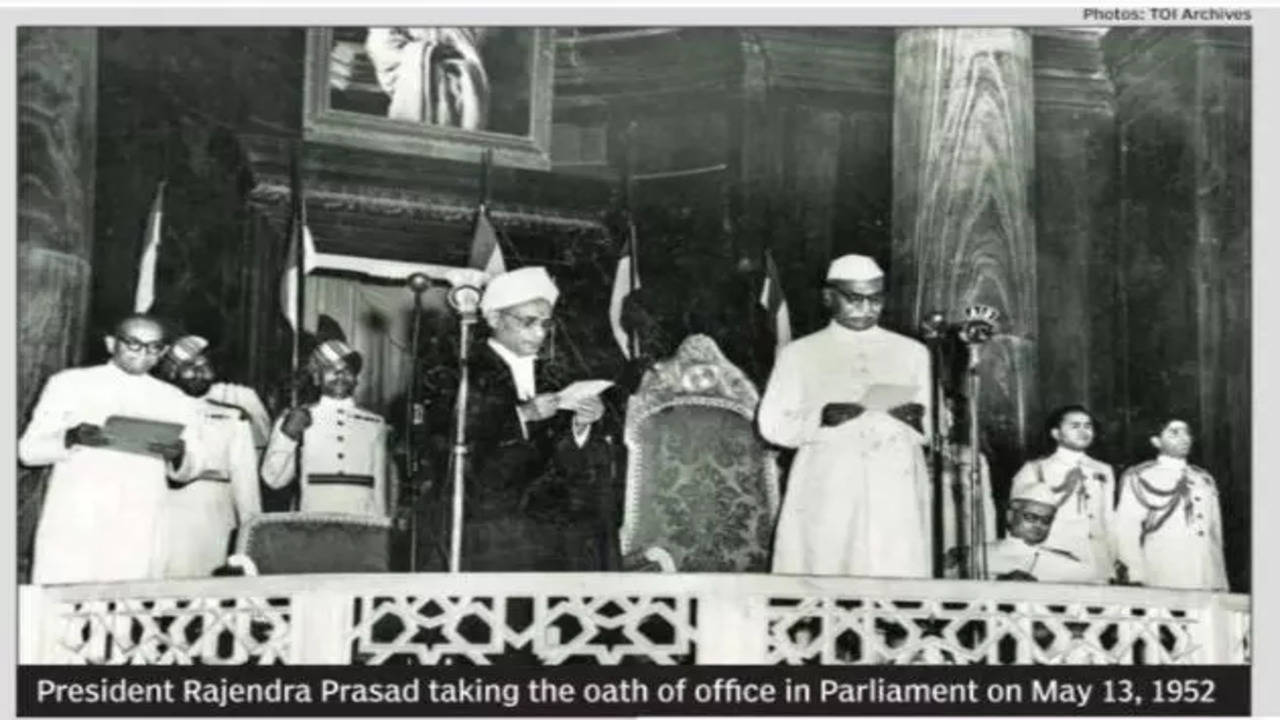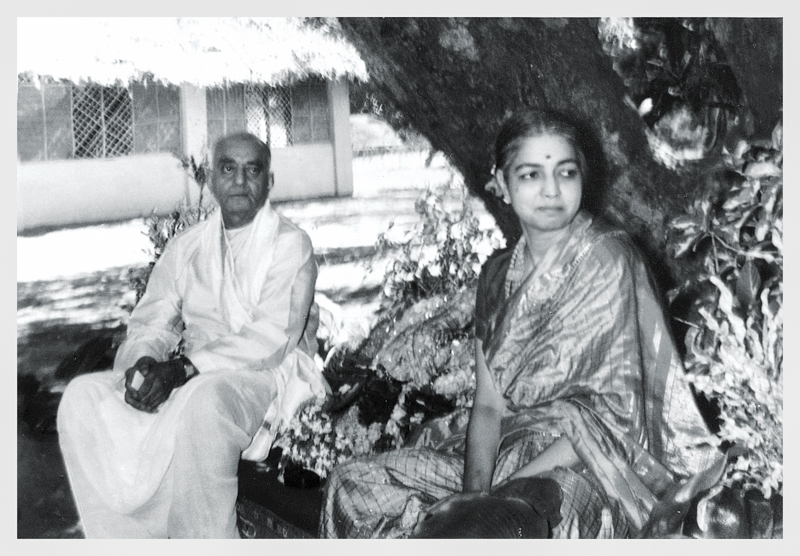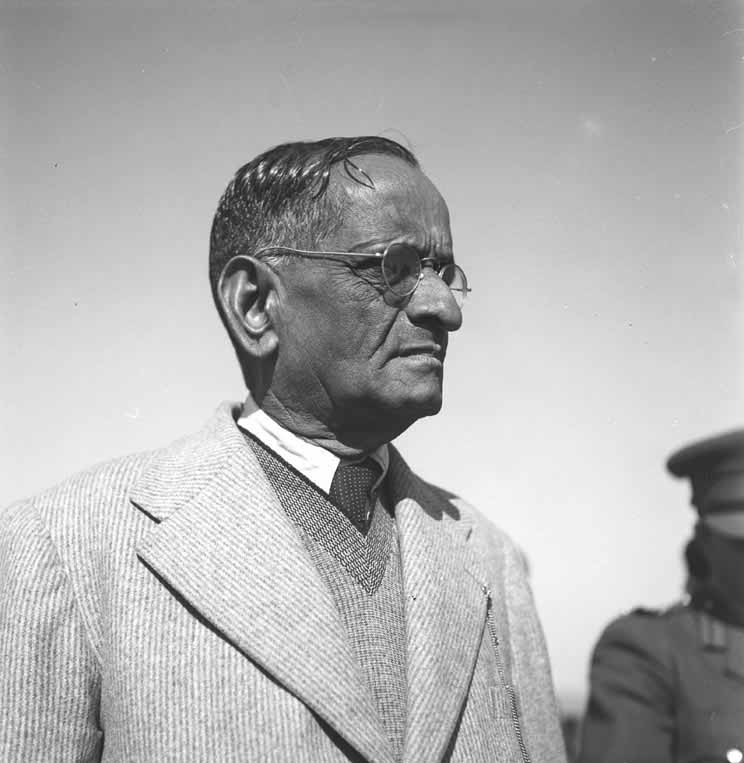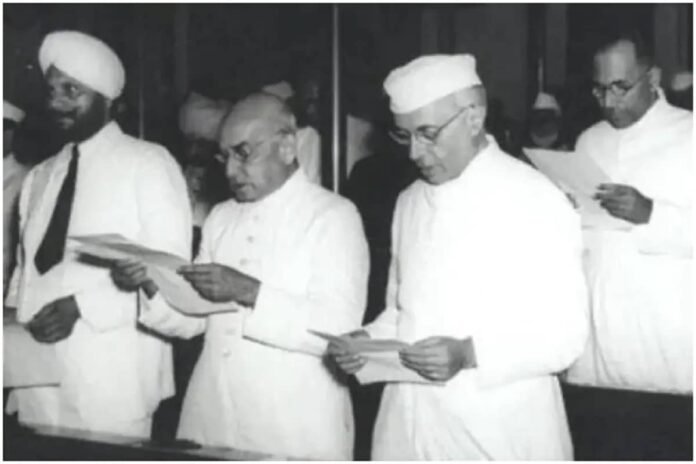May 13, 1952, was a momentous day in India’s legislative history, as it marked the inaugural session of the “Council of States.”
This pivotal moment was not merely a gathering, but a monument to the democratic ambitions of a recently emancipated country.
Dr. S Radhakrishnan, serving as the Chairman of the first Rajya Sabha session, effectively summarized the purpose of this new institution, which is meant to safeguard the ideals of the Republic’s founding leaders via careful lawmaking and discussion.

The Rajya Sabha on May 13, 1952 was established as a result of transforming a vision into reality.
The path leading up to this crucial day can be traced back to 1919, during a period of intense enthusiasm for establishing a democratic system modeled after other democratic nations.
The Montague-Chelmsford Report established the foundation, however it did not fully embody the intended federal spirit due to gender biases and colonial concerns.
Nevertheless, the unwavering determination of a nation seeking self-rule would quickly redefine these boundaries.


Upon achieving independence, the Union Constitution Committee, under the leadership of Jawaharlal Nehru, conceived an ambitious plan for a bicameral legislature.
The Upper House was conceived as a safeguard of democracy, responsible for maintaining equilibrium by tempering the hasty legislation proposed by the Lower House.
Therefore, the Council of States was conceptualized, including the desires of a consolidated nation and advocating for the varied interests of its states and territories which made May 13, 1952 a significant date in the history of Political India.
The inaugural gathering of colossal beings starting May 13, 1952
The inaugural session of the Rajya Sabha, which would eventually gain historical significance, was attended by 216 individuals who were considered visionaries.


Notably, Rukmini Devi Arundale, a pioneering female member, was among them. With Dr. S Radhakrishnan as the leader and N Gopalaswami Ayyangar as one of the prominent figures, this assembly began a mission to influence the future of Indian politics.


The first session established customs that persist to the day, even as they adapt to the changing nature of contemporary governance.
Originally meeting four times a year, this schedule was changed in 1994 to three times a year to align with changes in parliamentary procedures.
A Resilient Foundation of Democracy
Today, the Rajya Sabha is a resilient and essential institution of Indian democracy, serving as a permanent parliament that exists beyond the limitations of electoral cycles.
The members of this organization, comprising a diverse group of highly intelligent individuals, are chosen by election to represent the desires and variety of the Indian population. They serve as guardians of the nation’s legislative morality.
Significant achievements and recollections
The Rajya Sabha’s history is closely connected to important national events – ranging from the emergence of notable leaders such as Fakhruddin Ali Ahmed and Sri Sri Ravi Shankar, to critical occurrences like the Pokhran II nuclear testing.
Every event represents a significant milestone in India’s journey towards advancement, with the Rajya Sabha serving as its primary legislative body.
As we contemplate this remarkable journey, the Rajya Sabha continues to serve as a guiding light for democratic principles, thoughtful discussion, and effective decision-making, actively bringing the vision of our founding fathers to life and shaping the future of our Republic.
References :
- https://archive.pib.gov.in/archive/releases98/lyr2002/rmay2002/10052002/r1005200212.html#:~:text=May%2013%2C%201952%20marked%20the,time%20after%20the%20General%20Elections.
- https://navbharattimes.indiatimes.com/education/gk-update/historical-significance-of-13-may-when-first-session-of-parliament-convened/articleshow/69295284.cms
- https://en.wikipedia.org/wiki/1st_Lok_Sabha
- https://hindi.theprint.in/india/may-13-on-this-day-in-1952-the-first-parliament-session-of-independent-india-began/536197/
- https://www.dayoftheweek.org/?m=May&d=13&y=1952&go=Go
- https://cms.rajyasabha.nic.in/UploadedFiles/ElectronicPublications/FAQ.pdf
- https://edurev.in/question/1107256/What-is-the-significance-of-May-13–1952-with-rega



